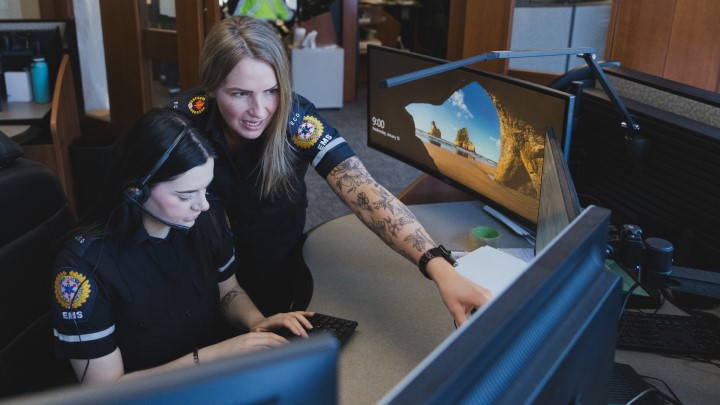
Often the first point of contact in an emergency situation, Emergency Communications Officers (also known as ECOs) answer and triage Emergency Medical Services (EMS) calls, and dispatch EMS personnel.
ECOs collect information about the emergency and location dispatch EMS to help and transport patients to the nearest hospital and provide instructions for callers until EMS arrives.
$31.11 - $39.82 per hour
Other benefits
Emergency Medical Dispatch (EMD) with Medical Priority Dispatch (MPD) certification
Not required

Your EMS offers a behind the scenes look at the people who provide emergency care, as well as the equipment, tools and programs.
To learn more about a career as an Emergency Communications Officer in our province visit Alberta Learning Information Services (ALIS).